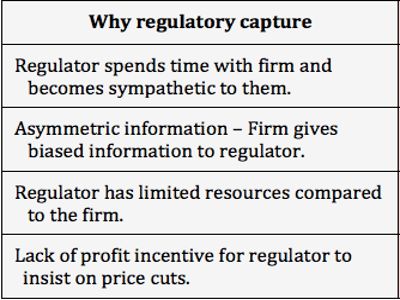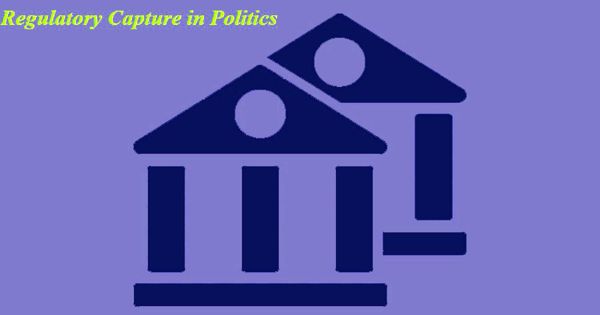Regulatory capture is an economic theory that says regulatory agencies may come to be dominated by the industries or interests they are charged with regulating. In politics, regulatory capture is a corruption of authority that occurs when a political entity, policymaker, or regulatory agency is co-opted to serve the commercial, ideological, or political interests of a minor constituency, such as a particular geographic area, industry, profession, or ideological group. It is a form of government failure where those bodies regulating industries become sympathetic to the businesses they are supposed to be regulating.
In economics and political science, the term regulatory capture is used to refer to a situation in which a regulated entity or industry exerts a strong influence over the government bodies or officials tasked with regulating that entity or industry.
When regulatory capture occurs, a special interest is prioritized over the general interests of the public, leading to a net loss for society. The opposite of regulatory capture is ‘public interest theory’ – the idea that government regulation can influence monopolies to behave in the public interest. It happens when a government agency operates in favor of producers rather than consumers. Government agencies suffering regulatory capture are called “captured agencies.” This often happens when suppliers have significant lobbying power e.g. with government agencies. It is an economic theory that regulatory agencies may come to be dominated by the interests they regulate and not by the public interest.

How does regulatory capture occur –
- Spending time with people makes you more sympathetic to their viewpoint.
- The regulator may rely on information coming from the firm – e.g. information about prices, costs, levels of investment.
- It is argued that those working for a regulator does not have the same incentives to work hard and act like surrogate competition.
- Possibility of corruption, firms giving ‘bribes’ to regulators.
Regulatory agencies are created to protect consumers but evidence suggests all regulatory bodies fall prey to regulatory capture. The theory of client politics is related to that of rent-seeking and political failure; client politics “occurs when most or all of the benefits of a program go to some single, reasonably small interest (e.g., industry, profession, or locality) but most or all of the costs will be borne by a large number of people (for example, all taxpayers).” Regulatory capture occurs when regulatory bodies protect and advance the agenda of the industry it was formed to regulate.















